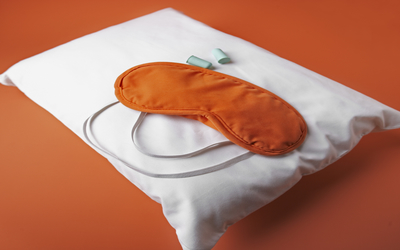As we age it becomes increasingly difficult to get a good night’s sleep, as our sleep patterns change dramatically. The great restful sleep we used to enjoy in our younger days gradually dissipates until it’s difficult to even fall asleep, let alone be well rested. By the time we reach 70, our night time sleep has shrunk by almost half meaning we get just 6.6 hours, compared to 11.6 when we are infants. There are a number of problems which can interfere with our ability to sleep, from dietary complaints to bone problems, which should be examined by a GP, but these are some ways to improve your sleep pattern. From lifestyle changes to simply being more active, your lifestyle choices could be to blame for your lack of sleep. These are easily modified though, so that you can rest and sleep for longer – effective sleep is vital for our wellbeing.
Exercise is a great way to help your ability to sleep. Studies suggest that seniors who exercised slept an average of 50 minute more each night than those who led a sedentary lifestyle. In addition to that, women who were physically active rated their quality of sleep far higher than those who didn’t exercise. A brisk walk could be enough each day to improve your ability to sleep – if you’re new to exercise, build up to regular exercise to avoid injury and stress to the body. Changing your routine could actually help seniors to fall asleep more easily. Light meals in the evening are advised, such as fish and vegetables instead of spaghetti, as this will cut the risk of a disturbed nights sleep. The same can be said of liquids right before bedtime, which will only increase the need to wake up in the middle of the night needing the bathroom. It’s also helpful to avoid stressful activities right before bed, so save the tax forms or potentially stressful phone calls until the morning – they will only serve to upset a calmed mind. A nice warm bath and reading a book, or listening to music, to help you calm your mind before bed can be beneficial for many people.
If you live in a busy area, or are easily woken by noises outside, this will lead to a regularly disrupted sleep. Ear plugs can solve this problem fairly easily, helping to block out any unwanted noise to help you drift off peacefully and get a restful nights sleep. There are many varieties to choose from and they’re easily found – your local supermarket or pharmacy should stock them. Paradoxical thinking can also be effective – this works by tricking your body into trying to stay up as late as possible, instead of trying to fall asleep. This technique has proven effective for many people over the years. There are various variations on this concept, which may be worth looking into if your other changes haven’t work. Medication can be used, of course, but should be an absolute last resort. You should speak to your GP if you think you may need sleep medication to help you sleep more thoroughly, and this should be monitored closely as it is easy to form a habit with these pills. You may find that a combination of the above changes leads to a better nights sleep, but if there are health problems you have which are leading to a disrupted sleep these should be solved first – for example, people with arthritis often struggle to sleep because of the pain. Resolving these issues with the help of your GP could help you regain your sleep pattern again.
